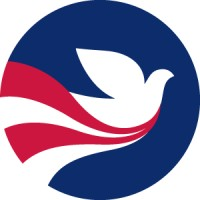English Education Teaching
Peace Corps
Office
Viet Nam
Full Time
Post
Viet Nam
Required Skills
Competitive candidates will have a Bachelor of Arts/Bachelor of Science degree in any discipline and a strong desire to teach English
Desired Skills
Highly competitive candidates will possess one or more of the following criteria:
o 30 hours of English, foreign language, or literacy tutoring experience with primary, middle or high school students or adults.
o Master of Arts in Teaching (MAT) in English, Teaching English as a Foreign Language (TEFL), Teachers of English to Speakers of Other Languages (TESOL), English as a Second Language (ESL), Teaching English as a Second Language (TESL), foreign language, or Applied Linguistics.
o Master of Education (M.Ed.) with graduate or undergraduate concentration in English, TEFL, TESOL, ESL, TESL, or foreign language.
o Bachelor of Arts/Bachelor of Science degree in Secondary Education with concentration in English, TEFL, TESOL, ESL, TESL, or foreign language.
o Bachelor of Arts/Bachelor of Science degree in any discipline with secondary education state certification in English, TEFL, TESOL, ESL, TESL, or foreign language.
o Bachelor of Arts/Bachelor of Science degree in English, TEFL, TESOL, ESL and TESL, or foreign language with 6 months classroom teaching experience at the secondary level (middle or high school) in English, TEFL, TESOL, ESL, TESL, or foreign language.
o Bachelor of Arts/Bachelor of Science degree in any discipline with 1 academic classroom teaching experience at the secondary level in English, TEFL, TESOL, ESL and TESL, or foreign language.
o Experience with professional development for teachers, curriculum development, and educational materials development.
o Experience planning and organizing activities for children and young adults (e.g., youth camps/clubs).
Living Conditions
During pre-service training (the first 10 weeks in country), Volunteers will live in small groups with a Vietnamese Language and Cultural Facilitator in independent housing near the Peace Corps office in the city of Ha Noi. When Volunteers move to their permanent community, they will live on school grounds in individual accommodations that are vetted to meet Peace Corps’ safety and security standards. School living accommodations will provide Volunteers with a safe, private room that includes basic furniture and bathroom and kitchen facilities. Bathroom and kitchen facilities may be shared or private depending on the school. Volunteers should be ready to adapt to a wide range of living conditions, but electricity, running water, and indoor plumbing are available. Volunteers will have access to local markets and transportation to the city. Wireless internet access is readily available in most places, though the connection speed and consistency can be of varying quality.
Schools and communities are committed to making Volunteers feel welcome. You can expect school officials and teachers to be actively involved in your day-to-day life to ensure you are safe and healthy. These teachers and school leaders will likely be very interested in how you are spending your time, what you enjoy eating, and your interests and hobbies. As this is a newer program, government officials will also likely be curious about your work, language development, and community integration. More broadly, Volunteers in Viet Nam should not presume privacy regarding their internet usage as the government of Viet Nam routinely monitors all social media.
Regardless of where in the world they serve, Peace Corps Volunteers are often the subject of curiosity and/or unwanted attention regarding both visible and non-visible aspects – e.g., skin and hair color or texture, height and weight, race, ethnicity, tribe, national origin, language, religious beliefs, political affiliation, family structure, age, marriage status, socio-economic status, ability, and other aspects. A Volunteer’s colleagues and neighbors may not be used to interacting with foreigners and may have preconceptions about Americans. With the support of Peace Corps staff, Volunteers will become adept at managing this type of attention. As a Volunteer and their community get used to living and working together, the level of this type of attention may fluctuate.
The Peace Corps is committed to creating a supportive environment for staff and Volunteers. During pre-service training, staff will provide Volunteers with information and support on what may impact their experiences in relation to integration, safety, and other topics. Peace Corps Viet Nam staff continues to gather information specific to what Volunteers may experience and welcomes discussions on concerns at any time.
Language Requirement
None
Language Skills Additional Information
Volunteers will receive intensive training in Vietnamese throughout pre-service training. Language training will focus on northern or southern Vietnamese dialect depending on community placements. Volunteers are expected to continue developing language skills during service through self-study and/or tutoring as use of local language assists with daily living and relationship building.
Vietnamese is considered a difficult language for English speakers to speak and comprehend, partly because it is a tonal language, where a single word can have multiple meanings depending on the pitch used. A desire to study and learn Vietnamese is essential, as Volunteers will work in areas where there is little English language spoken. Vietnamese is a Category IV language on the Foreign Service Institute’s language difficulty ranking, which ranks languages from easier (Category I) to more difficult (Category V) to learn for those with English as their native language.
Primary Sector
Education
Accepts Couples
No
Language Requirements Information
There are no pre-requisite language requirements for this position.
Country
Viet Nam
Assignment Length (months)
24
Accepting Applications?
Yes
Program
PCV
TEFL certificate program
No
Post to LinkedIn?
No
English Education Teaching
Office
Viet Nam
Full Time
July 20, 2025
